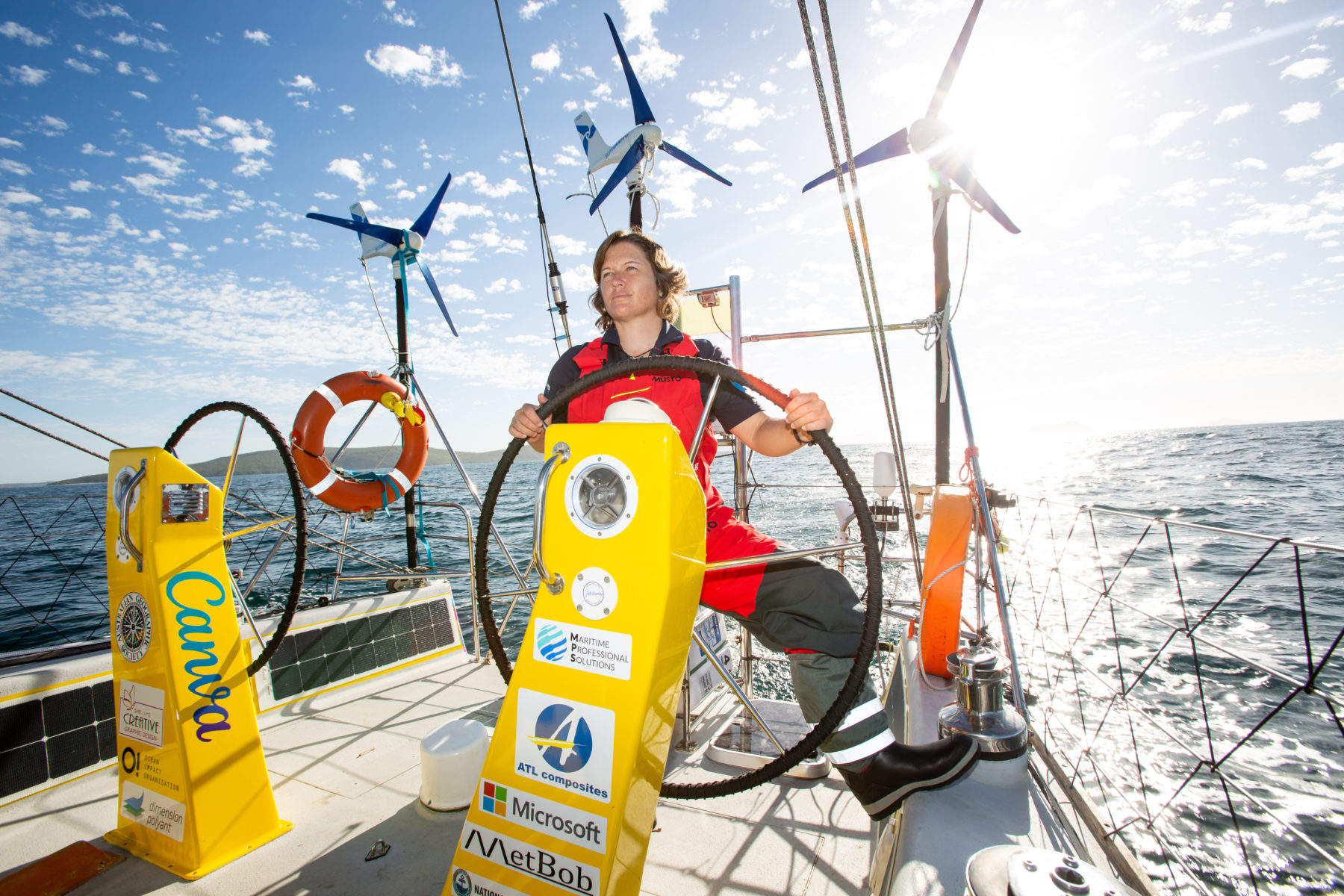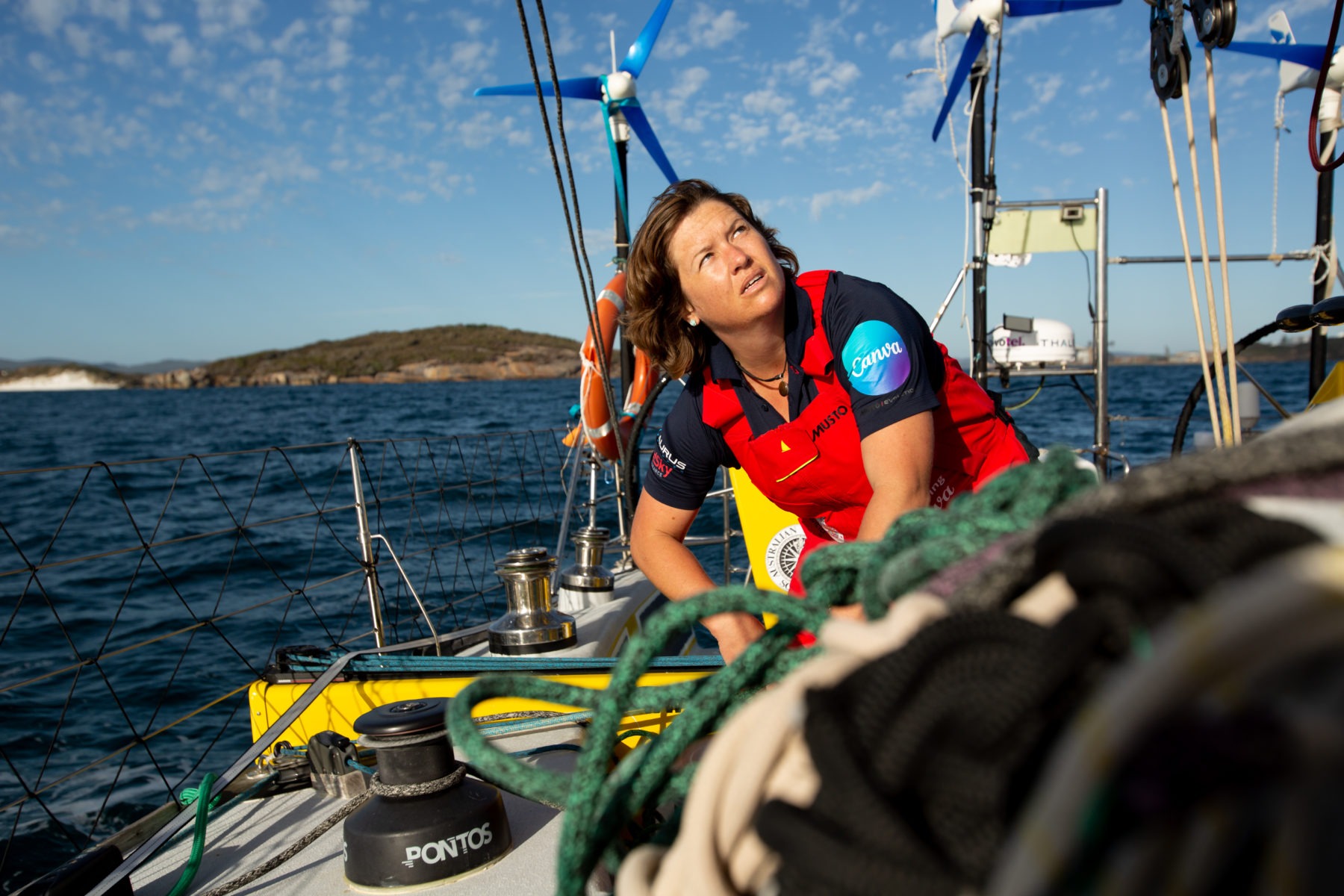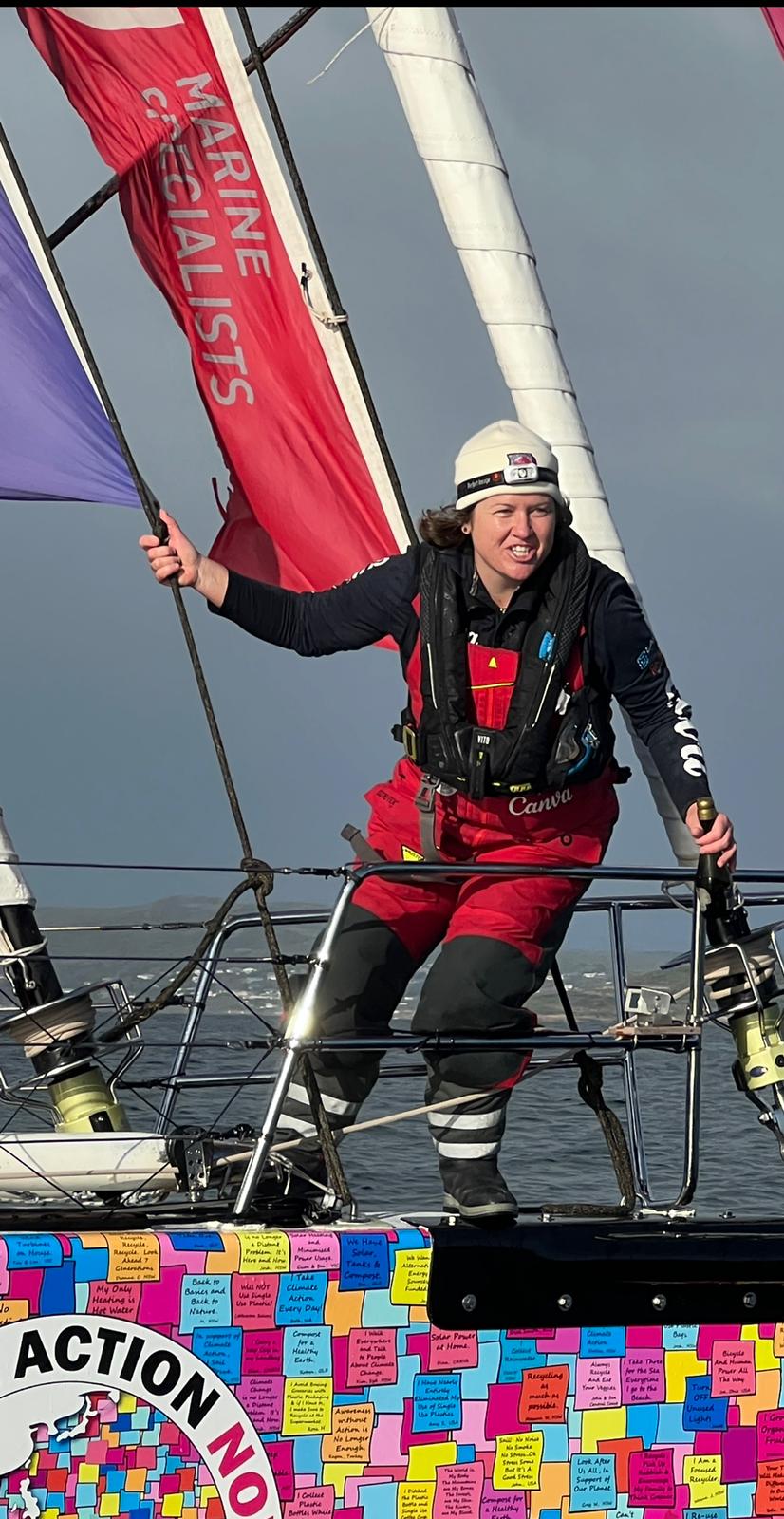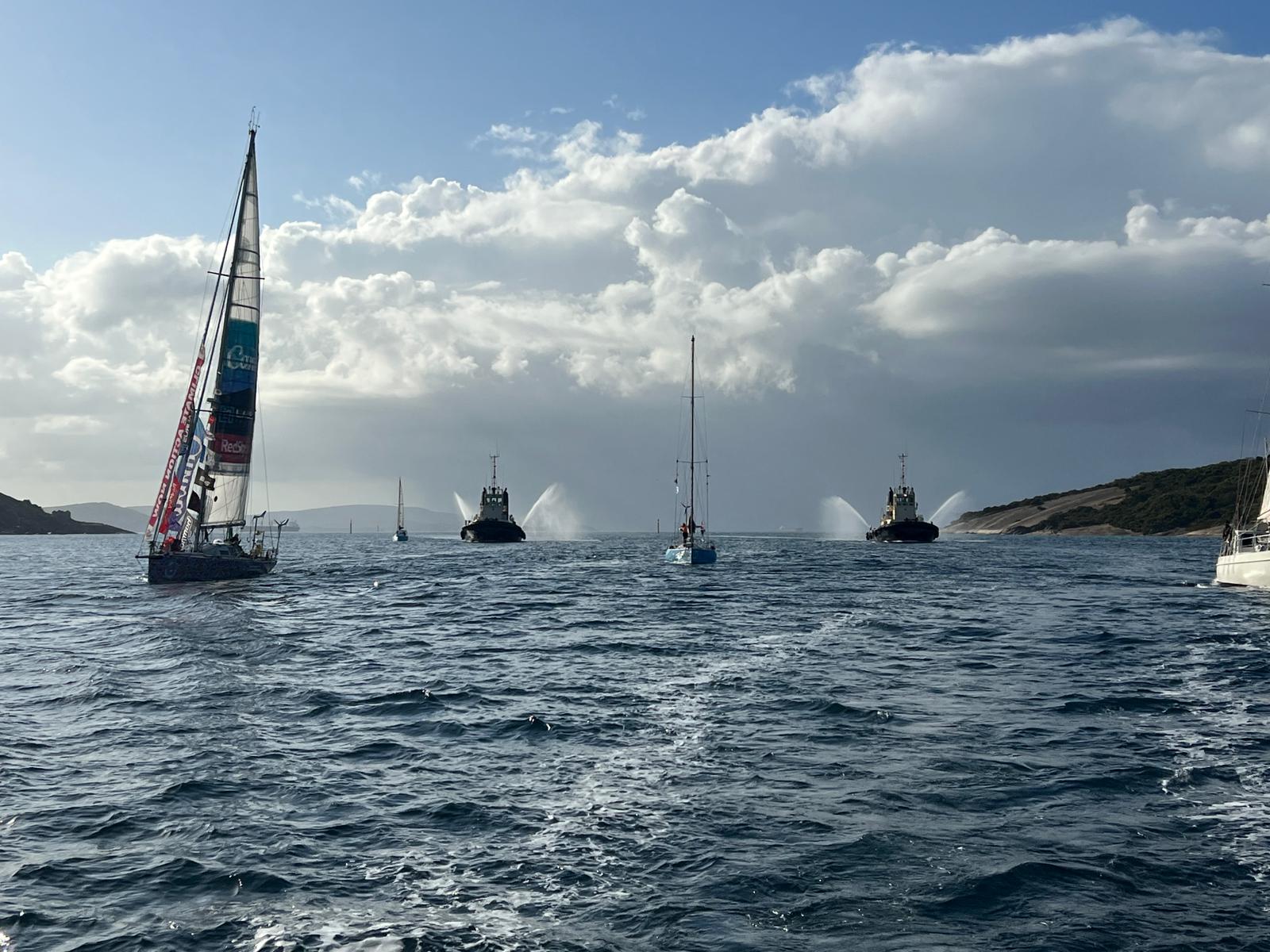Australian Geographic Society Gala Awards 2022: Adventurer of the Year, Lisa Blair

Lisa discovered her passion for sailing in 2005 while working as a host and deckhand on a charter boat in the Whitsundays. She was 25 years old and in her final year of university, studying to become an art teacher with a Bachelor of Visual Arts and a Bachelor of Secondary School Education.
Lisa quickly became hooked on sailing. By 2008, she completed her first ocean passage, spending three months at sea as part of a crew delivering a yacht to Hawaii. The following year, she worked as a host for Paragon Sailing, assisting charters between Maui and Lanai islands in Hawaii. In 2011, she became a crew member in the Clipper Round the World Yacht Race, working as a watch leader, bowman, rigger, and helmsman.
“The race was one of the hardest challenges I’d ever done,” Lisa says. “It was something I never thought I was capable of, until I had achieved it.”
The Clipper Round the World Yacht Race proved to be a formative experience for Lisa, prompting ideas of other ways to challenge herself and test the boundaries of her ability.
“I couldn’t see a more difficult way of sailing a boat than to sail it solo, because when you have crew, you have support and people to rely on,” she says. “I decided that solo sailing would be an interesting challenge and a unique way for me to learn [by being] self-reliant.”
After years of planning and preparation, Lisa embarked on her first major solo voyage in 2017, becoming the first woman to sail solo around Antarctica. Despite her initial goal to circumnavigate the continent non-stop and unassisted, a dramatic dismasting at sea threatened these plans – and her life.
Lisa was 72 days into the expedition when rigging failure caused her mast to collapse during a storm. Unsure whether she would survive the night, Lisa spent four hours battling with the boat, desperately struggling to free the rigging while blinded by violent winds and afflicted by the onset of hypothermia. Her yacht, Climate Action Now, was rocked by waves taller than a two-storey building, whose aggressive motion caused the mast to begin sawing the boat in half.
This is going to be my new benchmark for what I can achieve in life. I can only make it greater from here.
Having saved her yacht and self-treated her hypothermia, Lisa diverted north to Cape Town under an active Pan-Pan distress signal. She was given fuel from a container ship, however the 80,000-tonne vessel collided with her 11-tonne yacht during the fuel transfer. Lisa built a jury rig and arrived into port at Cape Town after 81 days at sea. Climate Action Now spent two months on land, undergoing repairs, before Lisa recommenced her voyage. She completed the final leg of her Antarctica circumnavigation and sailed back into WA on 25 July 2017.
Despite the traumatic ordeal of the dismasting at sea, the following year Lisa claimed a new world record by becoming the first woman to sail solo, non-stop, and unassisted around Australia. Departing from Sydney on 20 October 2018, the voyage spanned 6500 nautical miles (nm) and took 58 days, 2 hours and 25 minutes to complete.
“Surprisingly enough, [Australia] was technically a more difficult record than Antarctica,” says Lisa. “There are all sorts of different boats around Australia; there’s commercial shipping, small fishing tinnies, kayaks and ocean rowers. As a solo sailor, it’s still my responsibility to keep a good look out to avoid hitting any of those boats.”
For the entire duration of her voyage – 58 days at sea – Lisa’s sleeping schedule was reduced to 20-minute microsleeps.
“Because you’re so sleep deprived, it can be really easy to make an error,” Lisa explains. “That error could cost you the boat, your life, any number of things. Whereas Antarctica is open ocean; there’s icebergs and massive storms that come through, but there’s very little traffic and not alot to hit.”
With another world record under her belt, Lisa was determined to take on Antarctica once more and claim the speed record for the fastest, non-stop and unassisted circumnavigation of Antarctica. She departed Albany on 21 Feburary 2022. By day 28, she took the lead from Fedor Konyukhov’s 2008 record, and maintained in first place for the rest of the voyage. By the time she returned to Albany on 25 May, Lisa had shaved a total of 10 days off Fedor’s record.
“This record is the single greatest thing I’ve done so far,” says Lisa. “With that in mind, this is going to be my new benchmark for what I can achieve in life. I can only make it greater from here.”
To date, Lisa has sailed more than 110,000 nautical miles. She has written a book about her first Antarctica voyage, called Facing Fear. Despite the extreme sleep deprivation, social isolation and intense stress of life-threatening situations, adventure continues to beckon for Lisa.
“That sense of freedom is a huge part of why I want to do it,” she says. “It’s also now become so much more about the good I can do through the platform of ocean sailing. It’s the citizen science work, it’s the climate action campaign, it’s the inspiring of the next generation of women sailors, it’s the community activation that I get through my projects. The more voice I can generate, the more good I can do.”
On board her boat, Climate Action Now, Lisa collected oceanographic data, meteorological data and microplastic samples for researchers at the Australian Institute of Marine Science. This data is currently being processed by researchers but will become globally available in the coming months.






